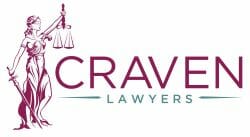Can a police officer search you without a warrant?
Author: Justin Craven, Brisbane Criminal Lawyer
In certain circumstances a police officer in Queensland can search you without a warrant.
In Queensland there are certain circumstances where a police officer may search a person without a search warrant. The Police Powers and Responsibilities Act 2000 (Qld) ( “PPRA”) states when police may search a person without a search warrant.
What does to “search” mean?
The PPRA defines “search” as including a frisk search of a person, but it doesn’t include the use of a drug detection dog to carry out drug detection.
What does to “search” mean?
The PPRA defines “search” as including a frisk search of a person, but it doesn’t include the use of a drug detection dog to carry out drug detection.
What is a frisk search?
It is defined in the PPRA as:
(a) a search of a person conducted by quickly running the hands over the person’s outer garments; and
(b) an examination of anything worn or carried by the person that is conveniently and voluntarily removed by the person.
Reasonable Suspicion
Before a police officer can search a person without a warrant, they must “reasonably suspect”: –
(1) the person has something that may be: –
♦ a weapon, knife or explosive the person may not lawfully possess, or another thing that the person is prohibited from possessing under a domestic violence order or an interstate domestic violence order; or
♦ an unlawful dangerous drug; or
♦ stolen property; or
♦ unlawfully obtained property; or
♦ tainted property; or
♦ evidence of the commission of a seven year imprisonment offence that may be concealed on the person or destroyed; or
♦ evidence of the commission of an offence of wilful damage under the Criminal Code, that may be concealed on the person or destroyed if, in the circumstances of the offence, the offence is not a seven year imprisonment offence; or
♦ evidence of the commission of any of the following offences in the Summary Offences Act 2005:
(i) Possessing a graffiti instrument.
(ii) Sale of spray paint to minors.
(iii) An employee of a seller has sold spray paint to a minor.
♦ evidence of the commission of the following offences in the Liquor Act 1992:
(i) Possessing liquor in a restricted area.
(ii) Attempting to take liquor into restricted area
OR
(2) the person possesses an antique firearm and is not a fit and proper person to be in possession of the firearm:
(a) because of the person’s mental and physical fitness; or
(b) because a domestic violence order has been made against the person; or
(c) because the person has been found guilty of an offence involving the use, carriage, discharge or possession of a weapon.
OR
(3) the person has something that may have been used, is being used, is intended to be used, or is primarily designed for use, as an implement of housebreaking, for unlawfully using or stealing a vehicle, or for the administration of a dangerous drug.
OR
(4) the person has something the person intends to use to cause harm to himself, herself or someone else.
OR
(5) the person is at a casino and may have contravened, or attempted to contravene, the offences of cheating (section 103) or Unlawful use of certain equipment (Section 104) contained in the Casino Control Act 1982 (Qld).
OR
(6) the person has committed, is committing, or is about to commit:
(a) an offence against the Racing Act 2002; or
(b) any of the following offences against the Corrective Services Act 2006 (Qld):
(i) Taking prohibited thing into corrective services facility or giving prohibited thing to prisoner (section 128).
(ii) Removing things from a corrective services facility (Section 129).
(iii) Interviewing and photographing a prisoner etc. (Section 132).
What can a police officer do if they hold the relevant suspicion?
The police officer can:
- stop and detain the person; and
- search the person and anything in the person’s possession for anything relevant to the circumstances for which the person is detained.
What if the police officer reasonably suspects the person is a participant in a criminal organisation?
The PPRA provides that if a police officer reasonably suspects a person is a participant in a criminal organisation they may, without a warrant, do any of the following:
(a) stop and detain the person; and
(b) search the person and anything in the person’s possession for anything that may provide evidence of the commission of an offence.
What does “reasonably suspect” mean?
This is defined in the PPRA as “means suspects on grounds that are reasonable in the circumstances”. This means that whether or not a police officer holds a reasonable suspicion will depend on the factual circumstances for each matter. The courts have held that the facts must be sufficient to induce a suspicion in the mind of a reasonable person. The suspicion must be reasonable, this means it cannot be arbitrary, irrational or prejudiced.
CONTACT US TODAY FOR A FREE CONFIDENTIAL CHAT 1800 529 000 OR FILL OUT THE FORM .
We’re Ready To Help You And Fight For Your Case Now!
WE ARE YOUR BEST DEFENCE
CALL 1800 529 000 NOW FOR EXPERT ADVICE
